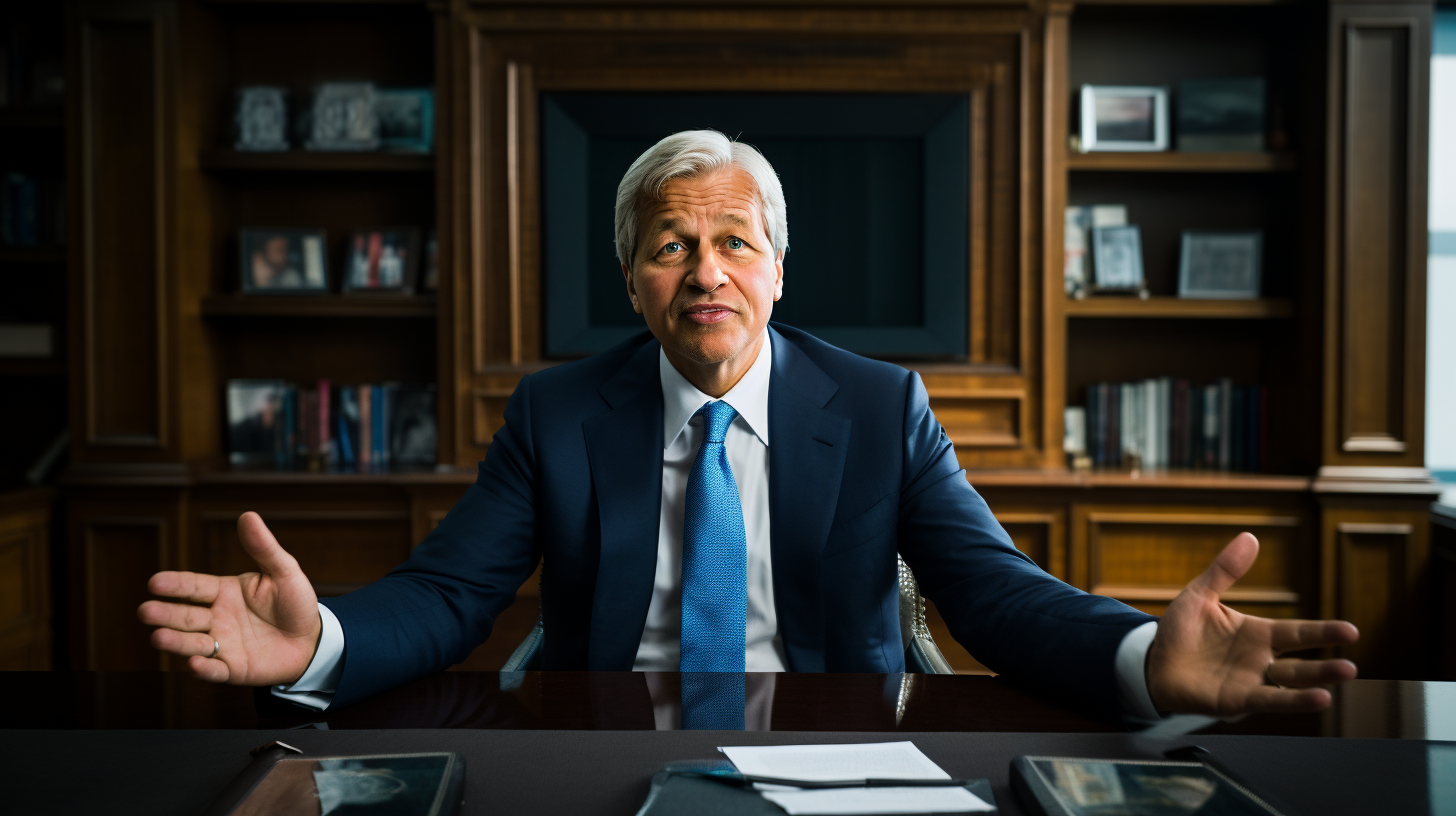JPMorgan Chase CEO Jamie Dimon is cashing out for the first time in his 17 years leading the banking giant. Dimon and his family are planning to unload $141 million worth of JPMorgan stock starting next year. The sale of one million shares marks the first time Dimon has trimmed his stake since taking the helm in 2006.
While surprising, the stock sale doesn’t represent a loss of faith by Dimon in JPMorgan’s future. According to a securities filing, Dimon “continues to believe the company’s prospects are very strong.” Even after shedding $141 million in stock, Dimon will still own around 7.6 million shares in the bank, worth over $1 billion at current prices.
Dimon timed the sale to take advantage of a rebound in JPMorgan’s stock, which is up 5% year-to-date despite headwinds facing the banking sector. With the Fed boosting interest rates aggressively to combat inflation, demand for loans has slowed. Banks are also earning less on their bond holdings as rates rise.
Yet JPMorgan has managed to deliver solid earnings this year, with profit jumping 35% last quarter. The acquisition of assets from failed West Coast lender First Republic enhanced results. Dimon has praised JPMorgan’s “fortress balance sheet” that has it positioned to weather economic storms.
While JPMorgan has excelled recently, Dimon has sounded the alarm on gathering risks. He warned the Fed’s inflation fight may tip the remarkably resilient U.S. economy into recession. Geopolitical tensions around the world are also a rising threat. “Now may be the most dangerous time the world has seen in decades,” Dimon said earlier this month.
With risks rising, Dimon seems to be taking money off the table while JPMorgan’s stock still hovers near 52-week highs. The sale allows him to lock in returns after a tremendous 17-year run as CEO. Since taking the helm, Dimon has led JPMorgan to become the nation’s most profitable bank, raking in $48 billion last year alone.
Yet even after the stock sale, Dimon maintains immense exposure to JPMorgan’s fortunes. His remaining 7.6 million shares give him a built-in incentive to keep delivering results and driving the stock higher. While handing some risk off to the market, Dimon remains invested in JPMorgan’s success.
Dimon’s high-profile stock sale could potentially have ripple effects across the stock market. Some may view the move as Dimon lacking confidence in the markets and economy, sparking wider selling. JPMorgan’s share price often acts as a bellwether for overall market sentiment. If investors interpret Dimon’s sale as a warning sign, it could drag down indices and lead to a pullback in stocks. However, most analysts believe the sale is simply prudent financial planning by Dimon rather than a market call. With risks rising, Dimon is wisely diversifying his holdings after a long run-up in JPMorgan’s shares. Therefore, while the sale makes waves in the news, it likely won’t dramatically sway broader market direction. But in jittery times, even a whiff of pessimism from an influential CEO like Dimon can impact overall investor psychology.
Some view the stock sale as a shot across the bow at the Federal Reserve. Dimon may be signaling that excessive rate hikes could stifle the economy and hurt the banking sector. By cashing out now, Dimon is suggesting trouble may lie ahead.
Nonetheless, JPMorgan insists Dimon has confidence in the bank’s “very strong” prospects. The stock sale appears to be prudent risk management rather than a warning. As a savvy leader, Dimon knows the value of diversification.
With markets on edge, Dimon’s stock sale provides a dose of foreboding. Yet JPMorgan remains well-positioned to weather any storm. As long as Dimon is at the helm, don’t expect one stock sale to derail JPMorgan’s trajectory anytime soon.
